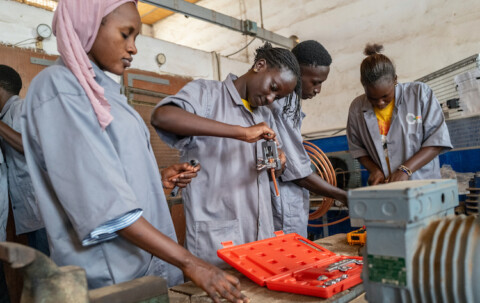The West African Examinations Council (WAEC) has released a set of mandatory facilities schools must provide ahead of the full transition of the West African Senior School Certificate Examination (WASSCE) to computer-based testing (CBT) by 2026.
Head of Examinations, WAEC, Mr. Lucky Njoagwuani, made this known on Thursday during a sensitisation programme in Port Harcourt.
He explained that schools are required to have at least 250 functional laptops with 10 percent backups, a robust computer server that can support 250 systems simultaneously, and a Local Area Network. Other compulsory provisions include functional air conditioning and lighting systems, uninterrupted power supply, a standby generator of at least 40kVA, CCTV cameras, and a holding area or reception facility for candidates.
According to him, the adoption of CBT will reduce logistics costs, enhance examination security, and expand access for candidates.
“We began the process about two years ago with the fourth series of the private candidates’ exam, and it was successful. This year’s private candidates’ exam, second series, is entirely computer-based with no paper option. By next year, the school candidates’ exam will also be fully CBT,” Njoagwuani stated.
The WAEC Zonal Coordinator in Port Harcourt, Mr. Adeniran-Amusan Akim, urged schools to start upgrading their ICT centres in line with WAEC standards, emphasizing that the new system is permanent. He warned that schools unable to meet the requirements will have their candidates assigned to approved centres.
“WAEC will not compromise on standards. Any school wishing to host the exams on its premises must provide the necessary facilities,” Akim said.
In his remarks, the Rivers State Chairman of the National Association of Proprietors of Private Schools (NAPPS), Mr. Sunday Jaja, advised school owners to explore funding opportunities through the Bank of Industry and the Federal Government’s MSME intervention fund to support the transition.
“Technology is driving modern education. This initiative will help schools remain competitive and prepare students for the realities of the digital age,” he added.
The sensitisation programme was jointly organised by Teadro Systems Ltd, NAPPS, and partners, including the Bank of Industry, HP, Lenovo, and Canon. The event also featured the donation of ICT devices such as computers, printers, and tablets to schools through a raffle draw.





